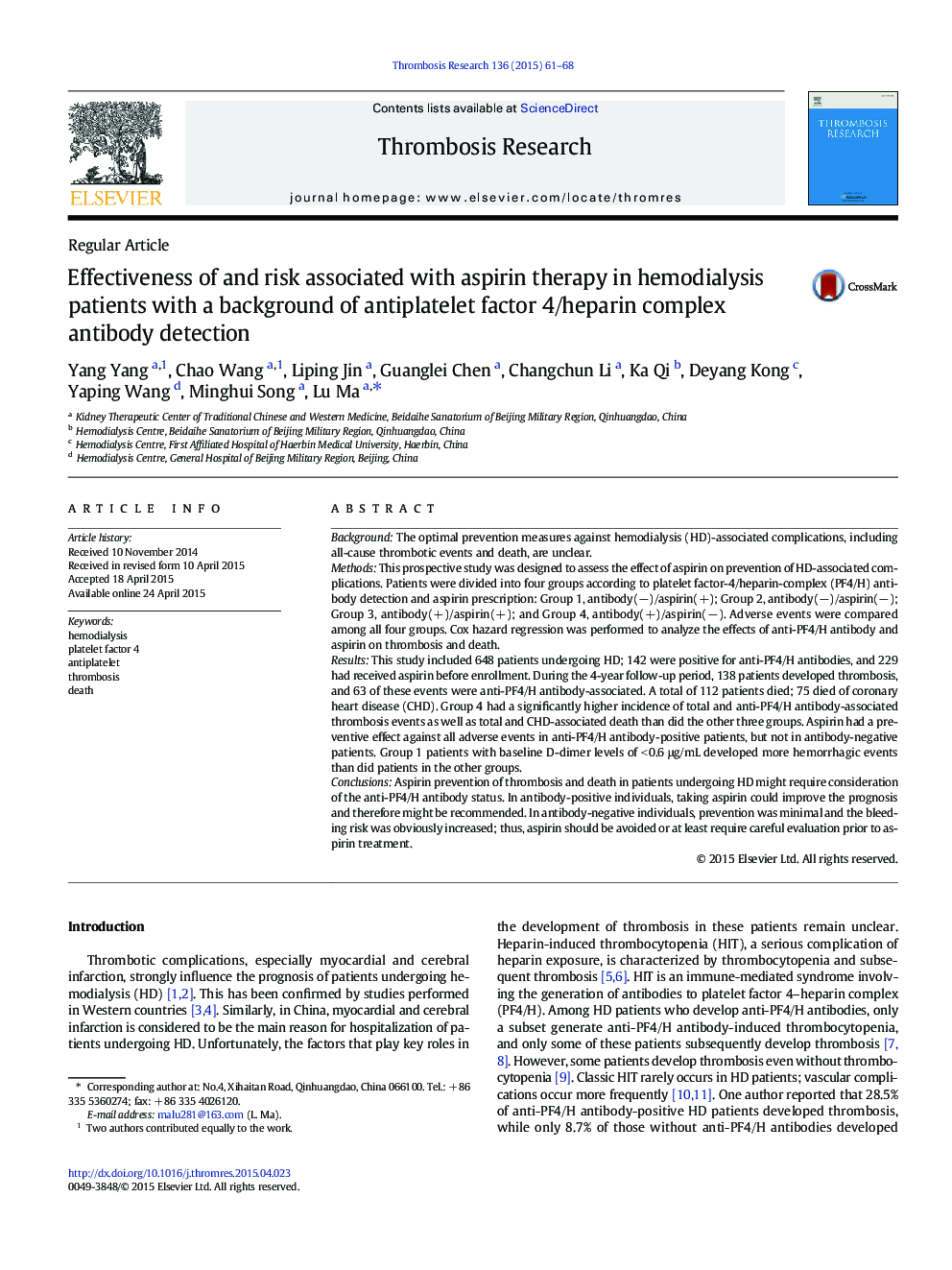| Article ID | Journal | Published Year | Pages | File Type |
|---|---|---|---|---|
| 6001139 | Thrombosis Research | 2015 | 8 Pages |
â¢anti-PF4/H antibodies is a predictive marker of thrombosis and mortality;â¢anti-PF4/H antibodies might be an indicator of the need for aspirin;â¢aspirin might be recommended in antibody-positive patients;â¢aspirin prescription may require careful evaluation in antibody-negative patients
BackgroundThe optimal prevention measures against hemodialysis (HD)-associated complications, including all-cause thrombotic events and death, are unclear.MethodsThis prospective study was designed to assess the effect of aspirin on prevention of HD-associated complications. Patients were divided into four groups according to platelet factor-4/heparin-complex (PF4/H) antibody detection and aspirin prescription: Group 1, antibody(â)/aspirin(+); Group 2, antibody(â)/aspirin(â); Group 3, antibody(+)/aspirin(+); and Group 4, antibody(+)/aspirin(â). Adverse events were compared among all four groups. Cox hazard regression was performed to analyze the effects of anti-PF4/H antibody and aspirin on thrombosis and death.ResultsThis study included 648 patients undergoing HD; 142 were positive for anti-PF4/H antibodies, and 229 had received aspirin before enrollment. During the 4-year follow-up period, 138 patients developed thrombosis, and 63 of these events were anti-PF4/H antibody-associated. A total of 112 patients died; 75 died of coronary heart disease (CHD). Group 4 had a significantly higher incidence of total and anti-PF4/H antibody-associated thrombosis events as well as total and CHD-associated death than did the other three groups. Aspirin had a preventive effect against all adverse events in anti-PF4/H antibody-positive patients, but not in antibody-negative patients. Group 1 patients with baseline D-dimer levels of < 0.6 μg/mL developed more hemorrhagic events than did patients in the other groups.ConclusionsAspirin prevention of thrombosis and death in patients undergoing HD might require consideration of the anti-PF4/H antibody status. In antibody-positive individuals, taking aspirin could improve the prognosis and therefore might be recommended. In antibody-negative individuals, prevention was minimal and the bleeding risk was obviously increased; thus, aspirin should be avoided or at least require careful evaluation prior to aspirin treatment.
Graphical AbstractDownload high-res image (188KB)Download full-size image
